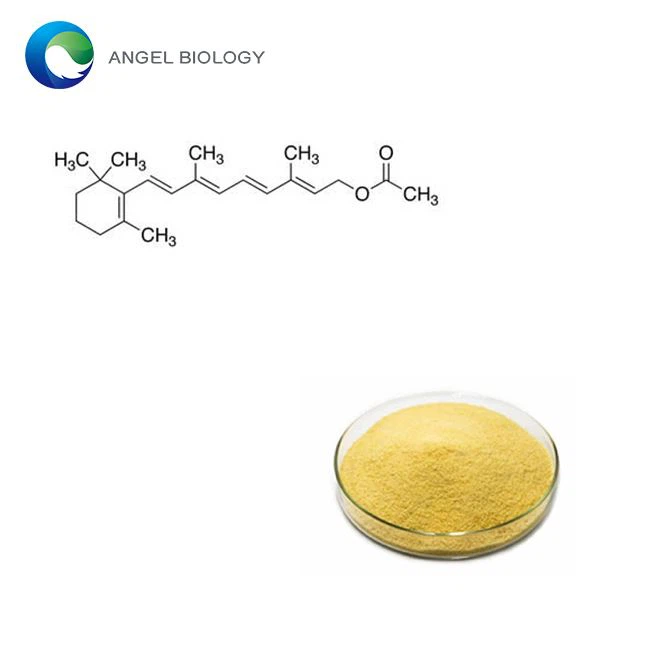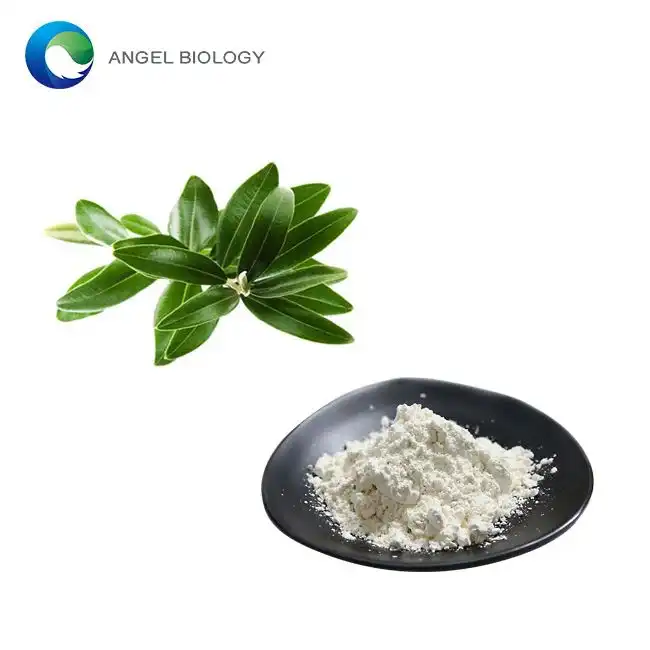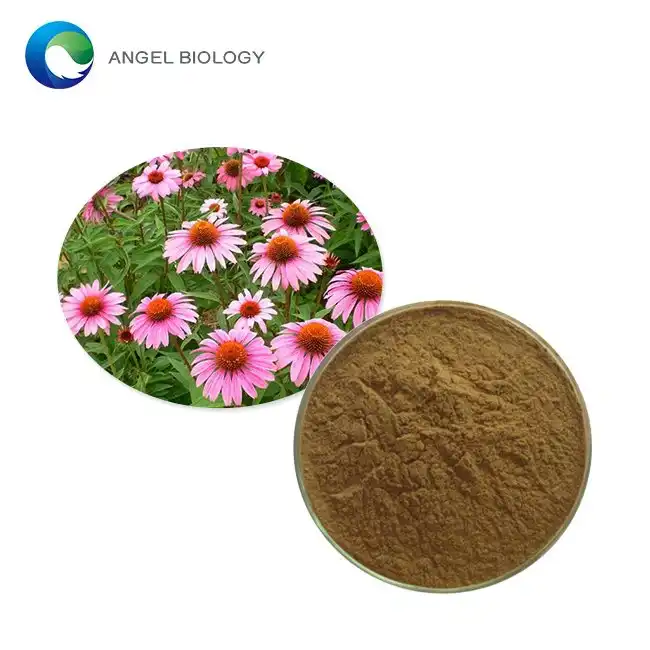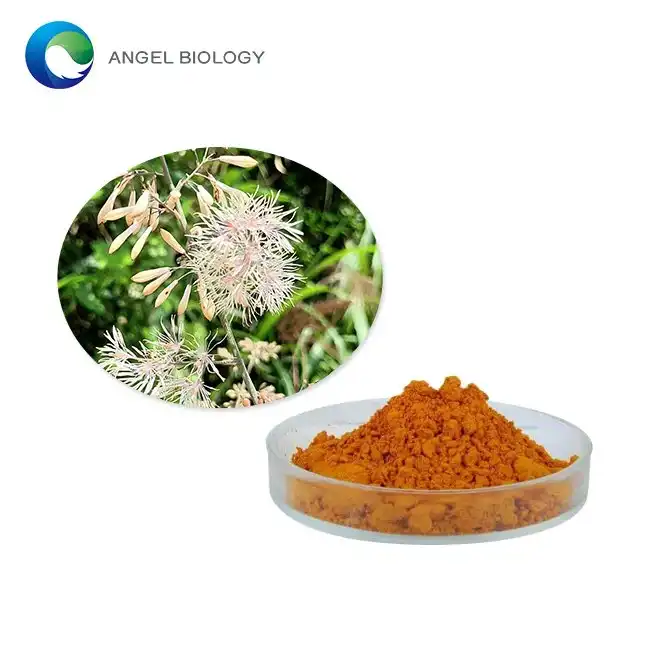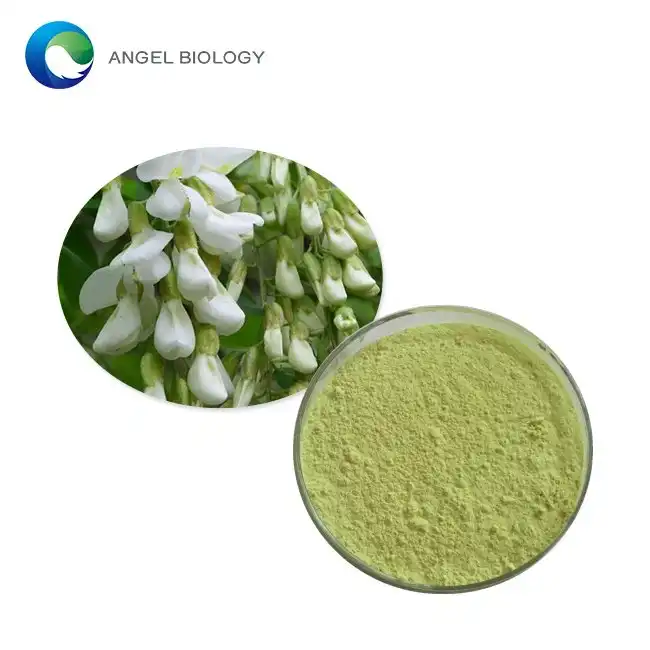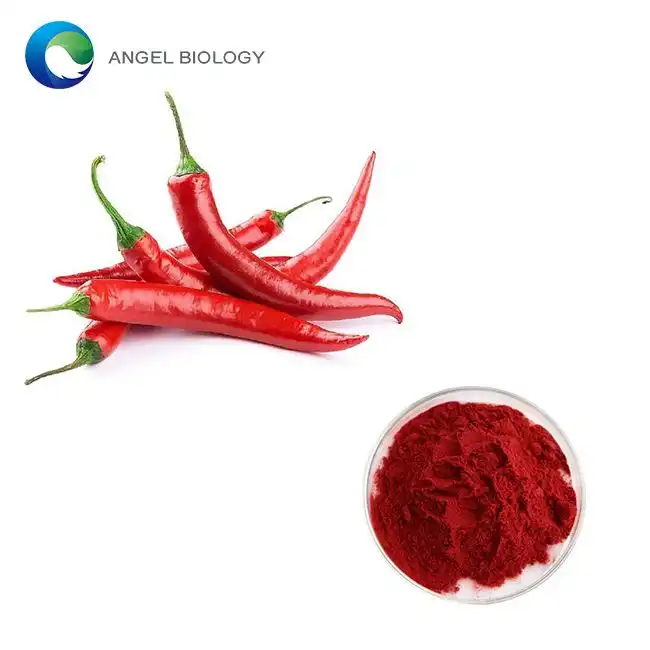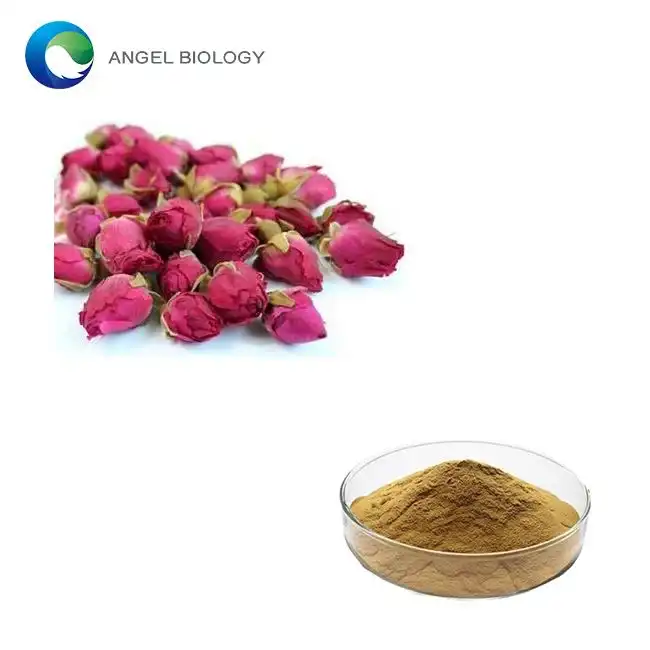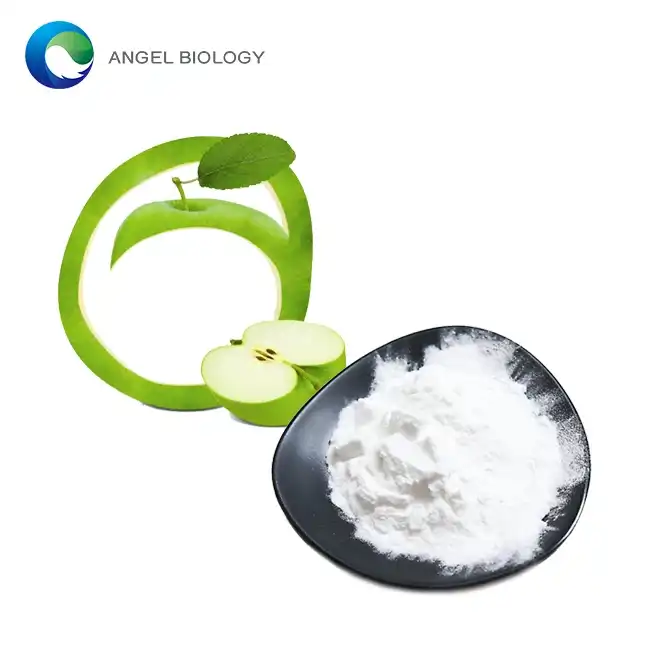What Is Maitake Mushroom Extract Used For?
Maitake mushroom extract, derived from the Grifola frondosa fungus, has gained significant attention in recent years for its potential health benefits. This powerful extract has been used in traditional medicine for centuries and is now being studied for its various applications in modern healthcare. In this blog post, we'll explore the uses of maitake mushroom extract and its potential benefits for overall health and well-being.
What Are the Potential Health Benefits of Maitake Mushroom Extract?
Immune System Support
Maitake mushroom extract is renowned for its potential to boost the immune system. The extract contains beta-glucans, complex polysaccharides that have been shown to stimulate various components of the immune system. These compounds can activate macrophages, natural killer cells, and T-cells, which are crucial for defending the body against pathogens and abnormal cells. Research suggests that regular consumption of maitake mushroom extract may help enhance the body's natural defense mechanisms, potentially reducing the risk of infections and supporting overall immune health. Additionally, the antioxidants present in maitake mushroom extract, such as ergothioneine and glutathione, may further contribute to immune system support by protecting cells from oxidative stress and inflammation.
Blood Sugar Regulation
One of the most promising areas of research involving maitake mushroom extract is its potential to help regulate blood sugar levels. Studies have shown that certain compounds in the extract, particularly the alpha-glucan polysaccharides, may help improve insulin sensitivity and glucose metabolism. This could be particularly beneficial for individuals with type 2 diabetes or those at risk of developing the condition. Maitake mushroom extract may work by enhancing the body's ability to utilize glucose more effectively, potentially leading to better blood sugar control. Some research has also suggested that the extract may help reduce the absorption of glucose in the intestines, further contributing to its blood sugar-regulating effects. While more studies are needed to fully understand the mechanisms at work, the potential of maitake mushroom extract in supporting healthy blood sugar levels is an exciting area of ongoing research.
Cardiovascular Health
Maitake mushroom extract has shown promise in supporting cardiovascular health through various mechanisms. The extract contains compounds that may help lower cholesterol levels, particularly LDL (low-density lipoprotein) cholesterol, which is often referred to as "bad" cholesterol. By reducing LDL cholesterol, maitake mushroom extract may help decrease the risk of atherosclerosis and other cardiovascular diseases. Furthermore, some studies have suggested that the extract may have antihypertensive properties, potentially helping to lower blood pressure. The antioxidants present in maitake mushroom extract may also play a role in protecting the heart and blood vessels from oxidative stress and inflammation, which are key factors in the development of cardiovascular diseases. While more research is needed to fully establish the cardiovascular benefits of maitake mushroom extract, the current findings are encouraging for those looking to support their heart health through natural means.
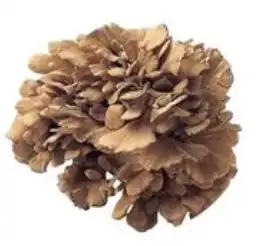
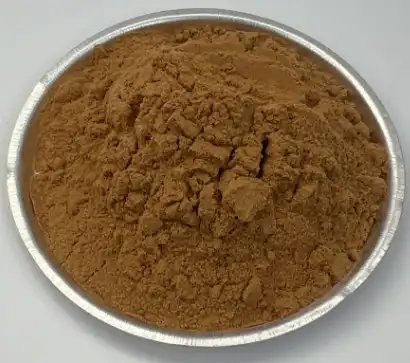
How Does Maitake Mushroom Extract Support Weight Management?
Metabolism Boosting Properties
Maitake mushroom extract has been studied for its potential to support weight management through its metabolism-boosting properties. The extract contains compounds that may help increase the body's metabolic rate, leading to more efficient calorie burning. This increased metabolic activity could potentially aid in weight loss or weight maintenance efforts. Some research suggests that maitake mushroom extract may help activate brown adipose tissue, which is responsible for thermogenesis - the process of heat production in the body. By promoting thermogenesis, the extract could potentially increase energy expenditure, contributing to weight management. Additionally, the fiber content in maitake mushroom extract may help promote feelings of fullness and satiety, potentially reducing overall calorie intake.
Fat Metabolism and Storage
Another way in which maitake mushroom extract may support weight management is through its potential effects on fat metabolism and storage. Some studies have indicated that certain compounds in the extract may help inhibit the formation of new fat cells (adipogenesis) and promote the breakdown of existing fat cells (lipolysis). This dual action could potentially lead to a reduction in overall body fat. Furthermore, maitake mushroom extract may help improve insulin sensitivity, which is crucial for proper fat metabolism. When insulin sensitivity is improved, the body becomes more efficient at using glucose for energy rather than storing it as fat. The extract's potential to support healthy blood sugar levels may also contribute to better fat metabolism and reduced fat storage.
Appetite Regulation
Maitake mushroom extract may play a role in appetite regulation, which is an essential aspect of weight management. The extract contains compounds that may help modulate hormones involved in hunger and satiety, such as leptin and ghrelin. By potentially influencing these hormones, maitake mushroom extract could help reduce excessive food cravings and promote a feeling of fullness. Additionally, the fiber content in the extract may contribute to appetite regulation by slowing down digestion and promoting a more prolonged sense of satiety after meals. Some research has also suggested that maitake mushroom extract may have a positive impact on the gut microbiome, which is increasingly recognized as an important factor in appetite regulation and overall metabolism. By supporting a healthy gut flora, the extract may indirectly contribute to better appetite control and weight management.
Can Maitake Mushroom Extract Help with Cancer Prevention and Treatment?
Anti-tumor Properties
Maitake mushroom extract has been the subject of numerous studies investigating its potential anti-tumor properties. Research has shown that certain compounds in the extract, particularly beta-glucans, may have the ability to inhibit tumor growth and spread. These compounds are thought to work by stimulating the immune system to recognize and attack cancer cells more effectively. Some studies have suggested that maitake mushroom extract may help enhance the activity of natural killer cells, which play a crucial role in the body's defense against cancer. Additionally, the extract may have antiangiogenic properties, meaning it could potentially inhibit the formation of new blood vessels that tumors need to grow and spread. While more research is needed, particularly in human trials, the preliminary findings on the anti-tumor potential of maitake mushroom extract are promising.
Chemotherapy Support
Maitake mushroom extract has shown potential as a complementary therapy for cancer patients undergoing chemotherapy. Some studies have suggested that the extract may help reduce the side effects of chemotherapy, such as nausea, vomiting, and fatigue. This could potentially improve the quality of life for cancer patients and allow them to better tolerate their treatments. Furthermore, there is some evidence to suggest that maitake mushroom extract may enhance the effectiveness of certain chemotherapy drugs, potentially leading to better treatment outcomes. The extract's immune-boosting properties may also help support the body's natural defenses during chemotherapy, which can often weaken the immune system. However, it's important to note that while these findings are encouraging, more research is needed to fully understand the potential benefits and risks of using maitake mushroom extract alongside conventional cancer treatments.
DNA Protection and Repair
One of the ways in which maitake mushroom extract may contribute to cancer prevention is through its potential to protect and repair DNA. The extract contains powerful antioxidants that can help neutralize free radicals, which are unstable molecules that can damage DNA and potentially lead to the development of cancer. By reducing oxidative stress, maitake mushroom extract may help prevent DNA mutations that could lead to cancer initiation. Additionally, some research has suggested that certain compounds in the extract may help stimulate DNA repair mechanisms in the body. This could potentially help correct genetic damage before it leads to cancerous changes in cells. The extract's potential to support overall cellular health and function may also contribute to its DNA-protective effects. While more research is needed to fully understand these mechanisms, the potential of maitake mushroom extract in supporting DNA health and potentially preventing cancer is an exciting area of ongoing study.
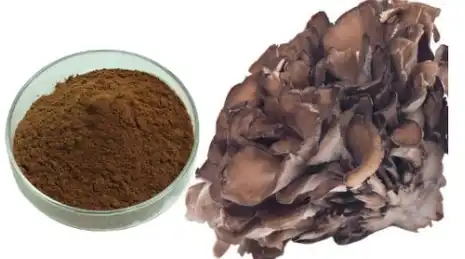
Conclusion
Maitake mushroom extract offers a wide range of potential health benefits, from supporting immune function and regulating blood sugar to aiding in weight management and potentially contributing to cancer prevention and treatment. While more research is needed to fully understand its mechanisms and efficacy, the current evidence suggests that this natural extract could be a valuable addition to a healthy lifestyle. As with any supplement, it's important to consult with a healthcare professional before incorporating maitake mushroom extract into your routine, especially if you have existing health conditions or are taking medications. The promising research surrounding this powerful fungus highlights the potential of natural compounds in supporting overall health and well-being.
Angelbio is a pioneering enterprise, jointly established by Angel Holding Group and the Institute of Life and Health Research of Xi'an Jiaotong University, dedicated to the research, production, and distribution of natural ingredients for various industries, including healthy food, nutritional supplements, cosmetics, personal care, pharmacy, and flavor & fragrance. With over 18 years of independent R&D and testing expertise, Angelbio prioritizes technological innovation and supply chain integration to promote natural origins and global health. Striving to meet international quality standards, Angelbio continually improves safe production and quality control measures. Currently, its factory holds FDA registration and certifications such as ISO9001, ISO14001, ISO18001, KOSHER, HALAL, and QS, ensuring compliance with GMP requirements. Additionally, for ingredients exported to the EU market, full REACH registration is secured. Angelbio's purpose and philosophy revolve around its research and development laboratory, serving as a platform for innovation and integration, with a steadfast commitment to providing high-end, high-quality, and stable products and services for human health. As a leading Black Pepper Extract Powder manufacturer in China, Angelbio's products are trusted and praised by customers. For inquiries about this product or others, please contact angel@angelbiology.com for dedicated service. These represent Angelbio's corporate advantages.
References
1. Mayell, M. (2001). Maitake extracts and their therapeutic potential. Alternative Medicine Review, 6(1), 48-60.
2. Konno, S., Tortorelis, D. G., Fullerton, S. A., Samadi, A. A., Hettiarachchi, J., & Tazaki, H. (2001). A possible hypoglycaemic effect of maitake mushroom on Type 2 diabetic patients. Diabetic Medicine, 18(12), 1010-1011.
3. Vetvicka, V., & Vetvickova, J. (2014). Immune-enhancing effects of Maitake (Grifola frondosa) and Shiitake (Lentinula edodes) extracts. Annals of Translational Medicine, 2(2), 14.
4. Chen, J. T., Tominaga, K., Sato, Y., Anzai, H., & Matsuoka, R. (2010). Maitake mushroom (Grifola frondosa) extract induces apoptosis in breast cancer cells by BAK-1 gene activation. Journal of Medicinal Food, 13(4), 888-898.
5. Shen, J., Park, H. S., Xia, Y. M., Kim, G. S., & Cui, S. W. (2014). The polysaccharides from Grifola frondosa mushroom: A review on their isolation process, structural characteristics and bioactivities. Bioactive Carbohydrates and Dietary Fibre, 4(1), 30-43.
6. Ulbricht, C., Weissner, W., Basch, E., Giese, N., Hammerness, P., Rusie-Seamon, E., ... & Woods, J. (2009). Maitake mushroom (Grifola frondosa): systematic review by the natural standard research collaboration. Journal of the Society for Integrative Oncology, 7(2), 66-72.



